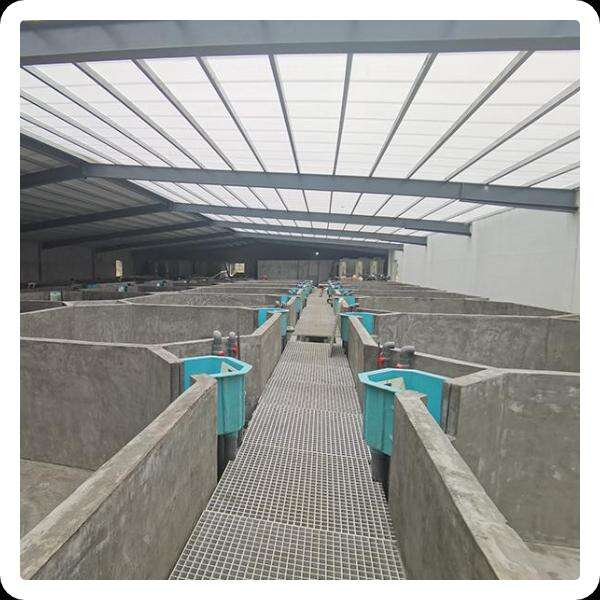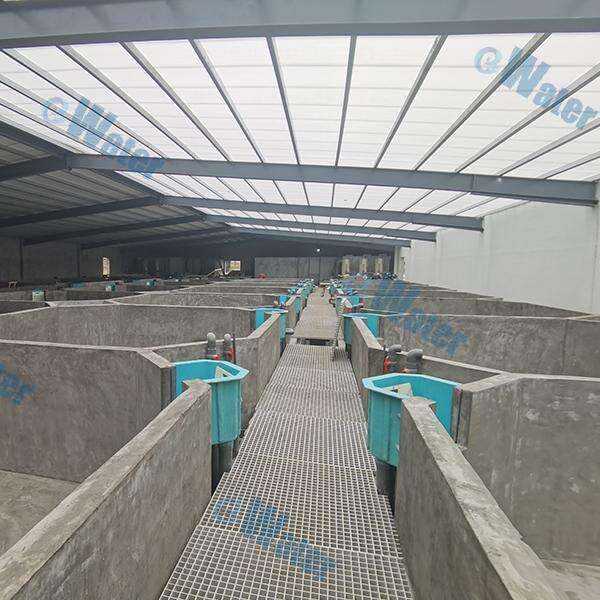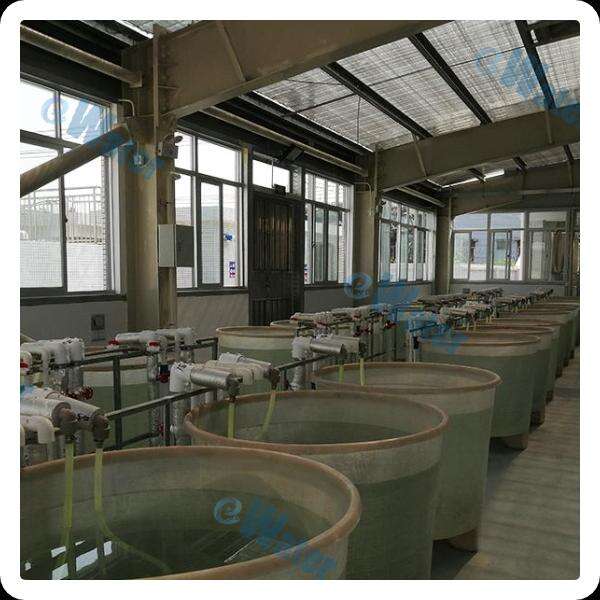Ushbu machha ekologik va kam ta'sirli, lekin ularning aqvakultura su tizimidan foydalanib olishi mumkin bo'lgan taomlaridan iborat ovqatlar to'plami hamda.
Akvakultura eng soʻnggi usullardan foydalanib, ekologik javobgar va davom etuvchi usulda eng yuqori sifatdagi bahariy mahsulotlarini ishlab chiqarish uchun boshqarilgan, boshqarilgan usul hisoblanadi. Tuzli suvdan bassa olinadigan toshak toʻqimlari bilan bir xil emas, akvakultura bahariy mahsulotlarni toza va boshqarilgan suv muhitida yetishishi uchun tizimlashgan. Ushbu tartiblar, sifatga doir konsumator kutilmalariga mos keladigan bahariy mahsulotlardan birinchi oʻrinda turuvchi resurslarning kengayishi va kengayishi uchun zarurdir. Maqola akvakulturaning nima uchun yaxshi boʻlganligi, uning rivojlantirilishi, xavfsizlikni saqlash, amaliy tadbiqlar, suvning rolidan oʻz ichida qanday foydalanilishi haqida gapiradi.
Ichkcha tarbiyalash uchun suv sistemalari oddiy olovchanlikka nisbatan ko'p foydali. Bu boshqariladigan muhit suv sifati parametrlarini (ugleonikni olish, harorat va brendlar) kuzatib borishga imkon beradi, bu esa suzuvchi turli yuqori darajali bahodir hayvonlarni yetakchilik qilishiga imkon beradi. Shuningdek, ular natijada eng yaxshi darajadagi deniz mahsulotlarining yuqori sonida to'planganligiga sabab bo'ladi. Shuningdek, ularga bog'liq tabiiy balik aholiyatini saqlash mumkin bo'ladi, shunda ov qilishdan oldin uni saqlash mumkin bo'ladi, bu esa ovqat ishlab chiqarishda davom etadigan uslubni ta'minlaydi. Shuningdek, shaharlarning yaqinida joylashgan ichkcha tarbiyalash suv sistemalari balik tranportatsiyasi bilan bog'liq karbon belgisini kamaytirishga imkon beradi.

Tarixi davomida, suv tizimlari aquakulturasida yana va yana rivojlantirilgan va bugungi kunda ushbu tizimlar osonroq va ekologik nazaridan doimos yaxshiroq bo'lgan holda ishlaydi. Mahsulotni yetkazishda ekologik muammolarini hal qilishning bir nechta yo'llaridan biri ayiq suv tizimlarini (RAS) qayta ishlash orqali amalga oshiriladi, bu esa suvni tikilgan holda ishlatish va song'acha effektiv ravishda filtratsiya qilish imkoniyatini beradi. Shu obyekt biologik flok texnologiyasidan foydalanadi - har bir chuvarda hidrodinamika va mikrobioma faoliyatini faollashtirib, organik xotira elementlarni eng kichik mikro ovqat zarralariga aylantiradigan revolyutsioner konseptsiya. Ushbu innovatsiyalar suv resurslarining kamayishi va aquakultura tizimlari ekologik standartlarini oshirishga yordam beradi.

Ushbu akvakultura su tizimlarining xavfsizligi asosiydir. Su sifati darajalari hayvonotning taomlarga kirishi mumkin bo'lgan holda, shunga qaramay qandaydir notog'ri holatlar olishi odamlarga zarar berishi mumkin, ular tushunarsizlikka sabab bo'ladigan odam sog'ligiga ta'sir yetkazadigan kimyoviy va maddalarini olib ketishi mumkin. Akvakultura fermalari buyumlarini xavfsiz va sifatli bo'lishi uchun ushbu tizimlarni amalga oshirishda muhim qoidalar va regulatsiyalarga amal qilish kerak. Global Akvakultura Aliansi kabi uchunchi tomon tomonidan berilgan tasdiqlash dasturlari akvakultura su tizimlari quyidagi xavfsiz kompozitsiyalar bilan bir xil bo'lishini tekshirish uchun muhim sertifikatsiya organlari hisoblanadi.

Akvakultura suvi tizimlari turli xil maqsadlar uchun ishlatiladi, shu jumladan, taqdim etilgan va cheklanmagan tijoriy deniz mahsulotlari ishlab chiqarish, tadbiqiy va naqliy taqdirga qaramasdan, dekorativ baliqni yetishdirish hamda boshqa vazifalar uchun. Tijoriy darajada, ushbu tizimlar sal'mon (dunyo protein akvakulturasi asosidagi 70-75%), forel' (12.5%), tilapiya (6.5%), mayi va karides/awnlar hamda boshqa turdagi hybrid striped bass, yellow perch va midinalar kabi baliqlar uchun ishlatiladi. Kalit xodimlarni sal'mon saqlash sohasidan jalb qilish ham akvakultura sohasidagi tadbiqiy taqdirga investitsiyalarni rivojlantirishga yordam beradi, bu esa ovozli ov qilishda innovatsiya va davr etishga erishish uchun muhim. Shuningdek, akvakultura suvi tizimlari umumiy ravishda pet savdo uchun dekorativ baliqlar ishlab chiqarishda ham ishlatiladi.
Akvakultura suvi tizimlaringizdan eng ko'p nima foydalanishingiz mumkin
Ammo qolganini eslayting, aqualkultur suvi tizimida muvaffaqiyatli ishlab chiqarish kichik detallarga bog'liq; xususan (lekin shu bilan cheklangan emas), har bir baliq nimani yeyishi va ularning suvidan qanday foydalanishlari haqida ma'lumot. Davom etuvchi aqualkultur praktikalarini amalga oshirish uchun suv sifati parametrlarini, masalan, haroratni, pH-ni, yechilgan oksigengacha, nutrisiongacha nazorat qilish, monitoring va boshqarish zarurdir. Mualliflik huquqi: FERMERLAR har bir turning maxsus talablariga moslashtrish uchun tizimni yanada sinab ko'rishi mumkin, jumladan, yuqori sifatli deniz mahsulotlari daromadini va sanoat bo'yicha davom etuvchi amaliyotlarni ta'minlash uchun.
Aqualkultur suvi tizimlari haqida ma'lumot. Meta maqsad - kirishlar oldini olish. August 27, 2011-yilda chop etildi | Admin tomonidan. Suv sifatini va muhimligini ta'minlash.
Ichchil avqatni uchun suv tizimlari sifati faqat hayvonlar ovozi bilan chekalgan emas, balki muhitga ham aniq iz qoldiradi. Shuning uchun, ekologik javobgarlik va davomiylik ularning dizaynida integrirovanniy bo'lishi zarur, shuningdek, bu tizimlarning ishlatilishi orqali ham ko'rsatilgan. Recirculating Aquaculture Systems (RAS) va biologik flok tizimlari kabi modellar suv sarflashini, xotira ishlab chiqarishini va energiya xarajatlarni kamaytirish orqali dunyo buyicha ichchalaviy mahsulotlarning davomiy ishlab chiqarilishini oshirishda yordam beradi. Ichchil avqatni uchun suv tizimlari biznes davom etishi mumkin va turli xil omilarga amantonli suv mahsulotlarini kelajakda ham xavfsiz va davomiy ravishda ta'minlashda muhim rol oynaydi. Davom etuvchi innovatsiya, investitsiyalar va suvdagi ekosistemalar ichida biologik protsesslarga nisbatan yaxshi tushunchaga ega bo'lish, ikkinchi tomondan esa iqtisodiy jihatdan amal qiluvchanligi va muhitni himoyalash orasidagi mos kelishni ta'minlaydi.
Umumiy olaraq, akvakultura su boshqaruvining ikki maqsadga yetishgan holda tayyorlanishi mumkin: bahriy mahsulotlarning ishlab chiqarilishini oshirish va ushbu rivojlanayotgan sanoatning ekologik bo‘lib turishini ta’minlash. Aqvakultura su tizimlarida foydalanishning barcha foydalaridan, eng so‘nggi texnologiyalardan, xavfsizlik jarayonidan, su tizimlari aqvakulturada qanday foydalanilgani, ularning maksimal foydalanishidan va sifat standartlaridan, shu jumladan ham dunyo miqdorida muhimligidan sababli, ular ishlayotgan suv manbalariga ega bo‘lishi kerak, agar yaxshi bahriy mahsulot ishlab chiqarmoqchi bo‘lsak. Shundaki, aqvakulturaning oldindagi safina bir necha moshkilga duch ketsa-da, uning kelajagi katta imkoniyatlarga ega va ushbu tadqiqot ekologik bahriy resurslar bir necha nesildan keyin ham saqlanishiga ishonch hosil qiladi.
akvakultura suv tizimi mijozlari joylashuvi uzuni o'rnatish kvalifikatsiyalari joyida. RAS mavzuqurinch ma'lumotlarni yurtdosh mijozlarga yetkazib beradi, binoning asosiy dizayni tayyorlanganligiga ishonch hosil qiladi, amaliy jadvalni va oldindan o'rnatishdan oldin kerakli ish talablarini ishlab chiqaradi.
eWater bir akvakultura suv tizimi akvakultura ta'minotchi kompaniyalardan biridir va akvakultura qayta davom etuvchi tizimlarda mutaxassislikka ega. mijozlar bilan ishlaydi va talablarga javob bermoqchi bo'lgan munosabatli yechimni rivojlantiradi.
eWater eng katta RAS oborotlarini ishlab chiqaradi. 2018-yilda, u Gen-3 ayillanuvchi bobur filterlari, Gen-2 ikhtiyoriy suv tizimi va Gen-3 oksigenatsiya tizimini yaratdi. Biz 3-yillik jamoani taklif etamiz va eng yuqori sifatli mahsulot va texnik yordamni ta'minlaymiz. 2016-yildan buyon, biz ISO/CE sertifikatiga ega bo'lganman.
eWater doim-da ikhtiyoriy suv tizimlari uchun yechimlarni qidirib turadi, RAS asosida xarajatlarni kamaytirish va energiya darajasini oshirish uchun. 2022-yil, sentyabr oyining 20-sana bo'yicha dunyo bo'yicha bitta kundagi 400 dan ortiq RAS-muammolarini muvaffaqiyatli hal qildi.
Bizning professional savdo jamoamiz sizning maslahatlaringizni kutmoqda.